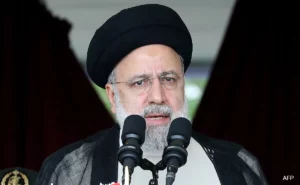West Out, Moscow In? Russia’s Satellite Deal with Junta-run Sahel States

telecommunications, surveillance satellite
Overview of the Satellite Deal
In a significant move that underscores shifting geopolitical alliances, Mali, Niger, and Burkina Faso, all governed by military juntas, have entered into a strategic agreement with Russia to acquire telecommunications and surveillance satellites. This partnership, formalized in Bamako, Mali’s capital, aims to bolster national security and enhance communication infrastructure in the Sahel region, which has been plagued by ongoing Islamist insurgencies and natural disasters.
Key Objectives of the Agreement
The primary objectives of the satellite deal include:
- Enhancing National Security: The satellites are intended to improve border surveillance and national security capabilities. This is particularly crucial as these countries face threats from Islamist militants operating across porous borders.
- Disaster Management: The technology will aid in monitoring and responding to natural disasters such as floods and droughts. Given the recent climate-related crises affecting millions in the region, this aspect of the deal is especially pertinent.
- Improving Communication: The telecommunications satellites will facilitate the broadcast of television and radio signals while also providing internet and telephone services to remote areas, thereby addressing significant gaps in communication infrastructure
Background Context
The deal comes against a backdrop of deteriorating relations between these Sahelian states and their traditional Western allies. Following a series of coups, the military governments have sought to distance themselves from Western influence, particularly from France and the United States. Instead, they have turned to Russia for military support and technological collaboration. The establishment of the Alliance of Sahel States last year marked a formalization of this shift towards increased military cooperation among these nations.
Russia’s Expanding Influence
Russia’s involvement in Africa has been characterized by a focus on military partnerships and resource extraction. The recent satellite deal is part of a broader strategy to deepen its influence in regions where Western presence has waned. Officials from Roscosmos, Russia’s aerospace agency, emphasized that this collaboration is “crucially important” for enhancing security along borders and addressing external threats.Moreover, this partnership reflects Russia’s approach of offering tangible benefits that resonate with local populations, such as improved media access and communication capabilities. As noted by Niger’s communications minister, Sidi Mohamed Raliou, this relationship with Russia is perceived as more responsive to current challenges compared to previous partnerships.
Implications for Regional Security
While the satellite technology promises to enhance surveillance capabilities and disaster response measures, there are concerns regarding its effectiveness in combating terrorism. Despite increased military support from Russia, analysts remain skeptical about whether this will translate into improved security outcomes in a region where extremist violence continues unabated
.The recent attack on Bamako’s airport by Islamist militants underscores the precarious security situation in the Sahel. The effectiveness of Russian assistance in addressing these threats remains to be seen as local governments grapple with entrenched insurgencies and regional instability.
Conclusion
The satellite deal between Russia and the junta-led states of Mali, Niger, and Burkina Faso marks a pivotal moment in West African geopolitics. As these nations seek to redefine their security strategies amidst growing instability, their partnership with Russia highlights a significant realignment away from Western influence towards new alliances that promise military support and technological advancement. Whether this shift will lead to enhanced security or merely serve as a temporary measure remains an open question as the region continues to navigate its complex challenges.






